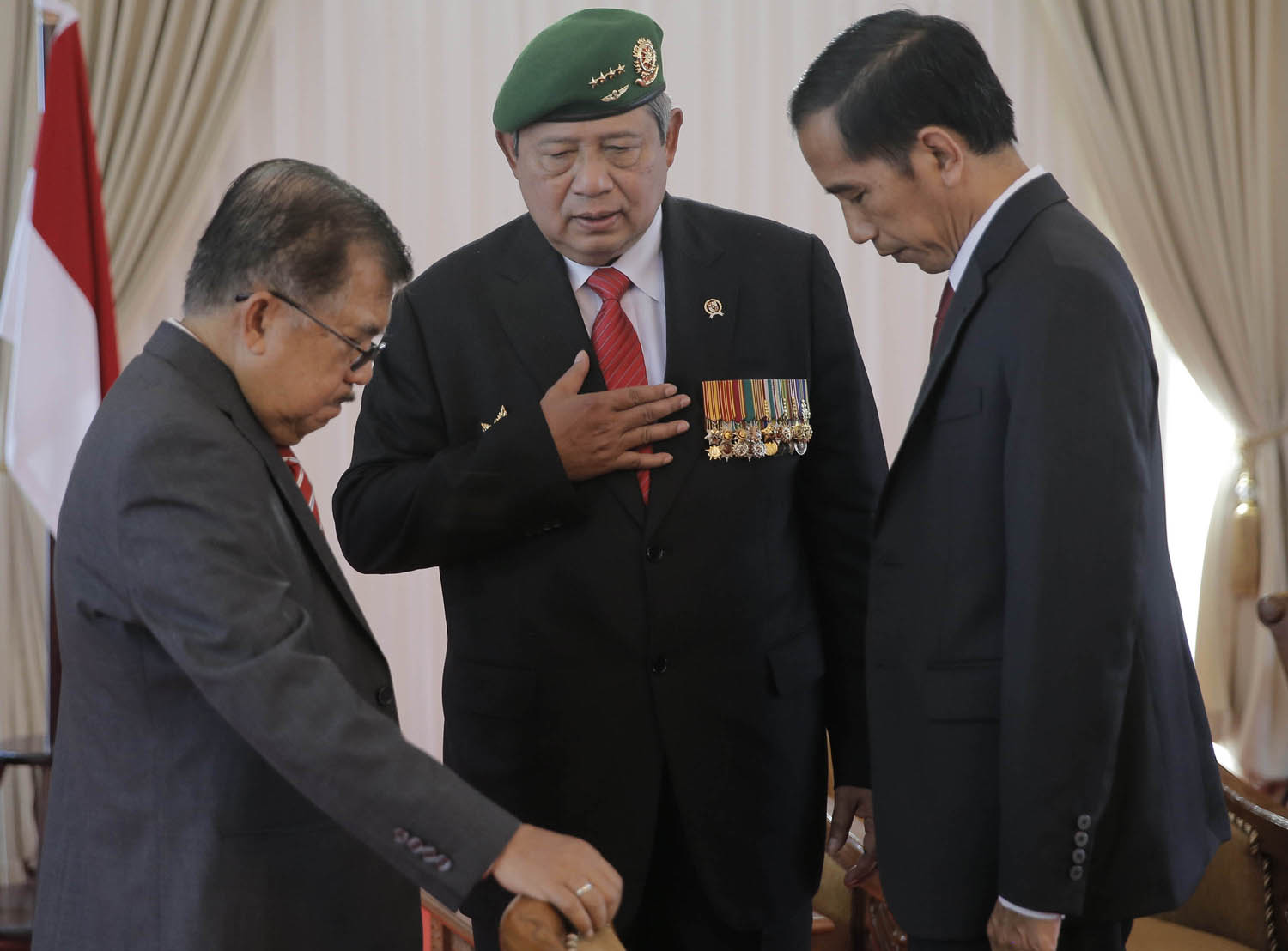
On Monday, Susilo Bambang Yudhoyono will hand over the keys to the world’s fourth most populous country and Southeast Asia’s largest state to the president-elect, Joko Widodo aka Jokowi. To find out what that means for Australia, the Lowy Institute’s Aaron Connelly has a new paper on Indonesia’s foreign policy under President Jokowi. With useful backgrounders on key figures in Jokowi’s inner advisory circle, the paper examines the impact they may have on the country’s global outlook and Indonesia’s bilateral relations with its southern neighbour.
According to Dutch law, it’s not illegal for Dutch bikies to fight with the Kurds against Islamic State. It is illegal, however, if they want to join a fight against the Netherlands or join the Kurdistan Worker’s Party (PKK). Keep reading here.
With the world currently gripped with the biosecurity risk associated with the Ebola virus, you wouldn’t think genetic engineering would be the next big global security threat. Writing in Foreign Affairs, Jamie Metzl argues that the time has come to debate the ‘national security implications of the human genetic revolution … to prevent dangerous future conflict and abuse’. Closer to home, he writes:
And what would the United States do if it learned that China had an effective human genetic enhancement initiative that would give China an insurmountable competitive advantage in a few decades?
While a bit alarmist, the piece raises some interesting points about the implications of combining human and animal genes, unequal global access to genetic engineering and the policy approach to this issue. Keep reading here.
If running operations in the Middle East and responding to Ebola in West Africa—among other things—weren’t enough, the Pentagon released a report (PDF) this week that states climate change ‘poses immediate risks to US national security’. While climate change preparedness for the military isn’t new (it began with the last Bush administration), this is the first time the threat has been framed as a challenge for today, rather than in the future. Mother Jones has a useful run-down on the Pentagon’s report here.
Turning to the Asia-Pacific, Alexei Arbatov of Carnegie’s Moscow Center, argues that cooperation and competition between the US, China and Russia will determine the region’s nuclear outlook. The piece discusses at length China’s strategic posture, missile systems and nuclear arms limitations. He suggests Beijing’s nuclear arsenal might be bigger than expected which will challenge the nuclear disarmament process.
Former Army officer and Soldier On CEO, John Bale, has written (PDF) that the Australian Army exhibits higher levels of stigma towards PTSD and higher barriers to care when compared to Navy or Air Force. Beginning with an overview of PTSD, his paper examines initiatives by the Canadian, British and American militaries to de-stigmatise the condition, including the use of ‘operational stress injury’ to better describe psychological difficulties resulting from service.
Former US Defense Secretary Leon Panetta (also known affectionately as ‘Uncle Leon’ on Twitter) has released his book, Worthy Fights: a memoir of leadership in war and peace. Adding to the library of recent political memoirs taking aim at the Obama government, Panetta describes the White House as unwilling to devolve power to its Cabinet and that the power vacuum left after its failure to secure a Status of Forces Agreement with Nouri al-Maliki contributed to the rise of ISIS. For a frank assessment, read David Ignatius’ review in the New York Times.
Lastly, and on a lighter note, dogs have played a faithful role by soldiers’ sides in many conflicts. Building on her weekly war dog column in Foreign Policy, a new book by Rebecca Fraenkel shares her insights into the furry world of the military working dog, from deployments in Vietnam to Iraq to their use in PTSD (or operational stress injury) treatment today.
Podcast
For a thought-provoking look at the human condition, psychology professor and expert witness on Abu Ghraib, Philip Zimbardo has a TED talk on why good people do bad things (part 1 of an NPR series on The Violence Within Us). He reflects on the results of his notorious 1971 Stanford Prison Experiment, funded by the US Office of Naval Research, and how its lessons in authority and institutions can help us understand the acts of torture and abuse committed at Abu Ghraib.
Events
The Kokoda Foundation is currently recruiting future strategic leaders to speak at its next round of Kokoda Next, where they’ll present to an audience of Defence and national security leaders. If you’ve got a fresh idea on Australia’s security thinking, apply by Monday 31 October. Register here.
Australia is involved in the early stages of a long conflict in the Middle East against extremism. Join us for a panel discussion with Peter Leahy, Peter Jennings and Tobias Feakin, moderated by Cath McGrath on the three fronts of this conflict (between Sunnis and Shias, between radicals against regional governments, and between groups of radicals against the West and the West) and Australia’s response. The event is free and will be held on Tuesday 21 October at ASPI offices at 5.30pm. Register here.
Natalie Sambhi is an analyst at ASPI and managing editor of The Strategist. Image courtesy of the official website of the President of the Republic of Indonesia.

